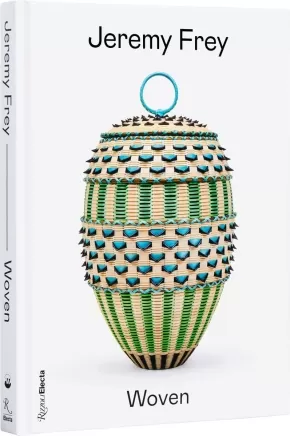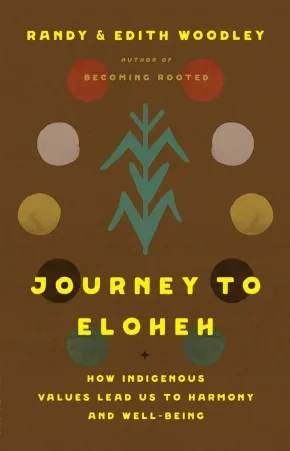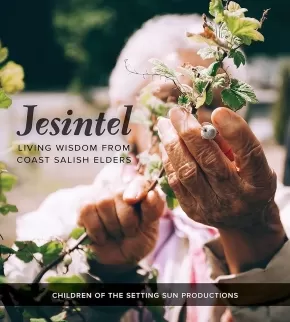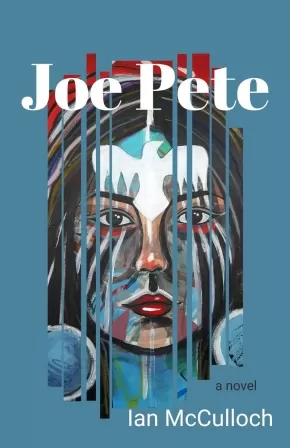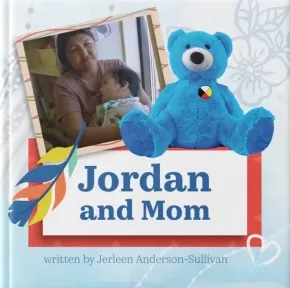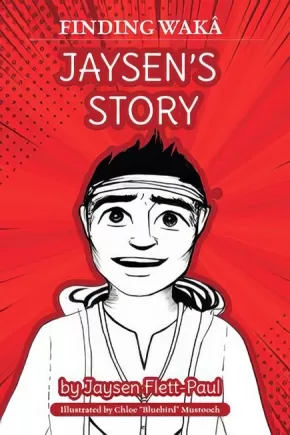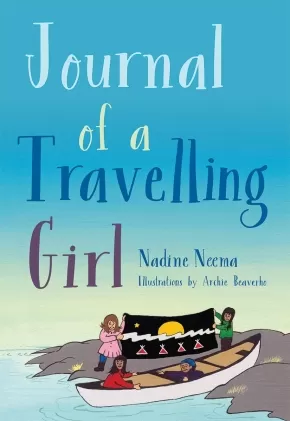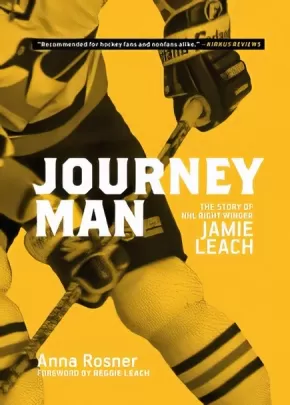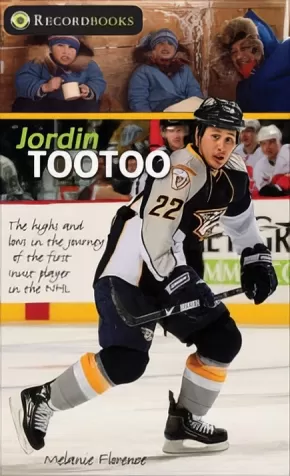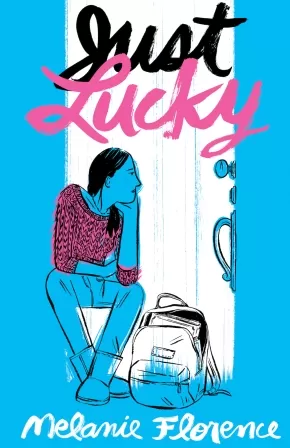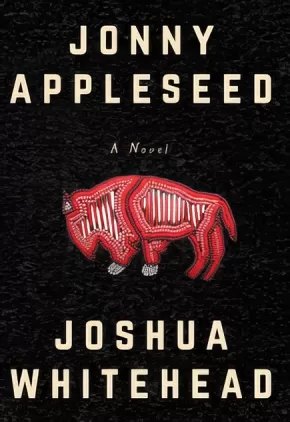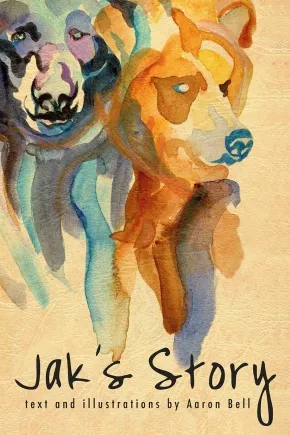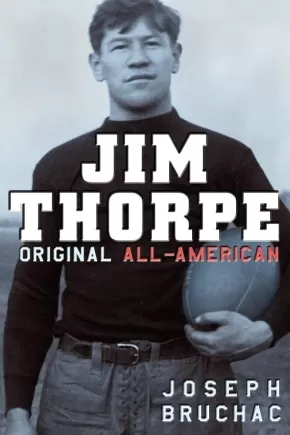
Browse Books for Teens
1
-
15
of
16 Results; (Teen Books Starting With "J")
Sort By
Go To
of 2
Jeremy Frey: Woven
$67.50
Format:
Hardcover
Text Content Territories:
Indigenous American; Native American; Passamaquoddy (Peskotomuhkati);
ISBN / Barcode: 9780847899708
Synopsis:
Synopsis:
The only book on award-winning Indigenous basket maker Jeremy Frey, accompanying his first major traveling exhibition.
Frey (Passamaquoddy) is one of the most respected Indigenous basket makers working today. Descended from a long line of basket makers, his work is known for its intricate design and exquisite artistry, which reflect both traditional techniques and his own creative vision.
This catalogue considers his work from a variety of perspectives. Secord, whom Frey credits for guiding his career as the founder of Maine Indian Basketmakers Alliance, contributes a detailed biographical essay. DeSimone situates Frey’s work in the broader field of contemporary art, with a specific focus on the new video work he is making for the exhibition. Hoska focuses on Frey’s art in the broader context of Native basket and fiber arts. And Mize considers the ways in which his expanding practice registers ecological knowledge, time, and the impact of climate change.
Additional Information
160 pages | 8.85" x 11.91" | Hardcover
Journey to Eloheh: How Indigenous Values Lead Us to Harmony and Well-Being
$37.99
Format:
Hardcover
Text Content Territories:
Indigenous American; Native American; Shoshone; Eastern Shoshone Tribe; Cherokee; United Keetoowah Band ;
ISBN / Barcode: 9781506496979
Synopsis:
Synopsis:
Rooted in ten Indigenous values, this thoughtful, holistic book-written by Randy Woodley, a Cherokee descendant recognized by the Keetoowah Band, and Edith Woodley, an Eastern Shoshone tribal member-helps readers learn lifeways that lead to true wholeness, well-being, justice, and harmony.
The pursuit of happiness, as defined by settlers and enshrined in the American Dream, has brought us to the brink: emotionally, spiritually, socially, and as a species. We stand on a precipice, the future unknown. But Indigenous people carry forward the values that humans need to survive and thrive. In Journey to Eloheh, Randy and Edith Woodley help readers transform their worldviews and lifestyles by learning the ten values of the Harmony Way. These ten values, held in common across at least forty-five Indigenous tribes and nations, can lead us toward true well-being: harmony, respect, accountability, history, humor, authenticity, equality, friendship, generosity, and balance. By learning, converting to, and cultivating everyday practices of Eloheh--a Cherokee word meaning harmony and peace--we have a chance at building well-being and a sustainable culture.
In this riveting account of their own journeys toward deepening their indigeneity and embodying harmony, Edith, an activist-farmer, and Randy, a scholar, author, teacher, and wisdom-keeper, help readers learn the lifeways of the Harmony Way. The journey to Eloheh holds promise for all of us, Indigenous or not.
We know the Western worldview is at odds with a sustainable Earth, a just common life, and personal well-being. Together we can convert to another way of living--one that recognizes the Earth as sacred, sees all creation as related, and offers ancestral values as the way forward to a shared future.
Reviews
"Edith and Randy Woodley's passion and persistence to create spaces of community and care are inspiring. A blend of storytelling, theology, and guidance harvested directly through Indigenous wisdom, Journey to Eloheh reminds us to stay true to the path of kinship and belonging, and to never give up on justice and peacemaking in the world. I highly recommend this book for anyone who is searching for a way to be a better relative on this earth or to fight for a better reality for future generations. This book will help you get there." --Kaitlin B. Curtice, award-winning author of Native and Living Resistance
"Spiritual journey as autobiography: like a Navajo weaver, Journey to Eloheh skillfully connects Native American theology and personal experience into a way of life. If you are looking for your own path, Edith and Randy Woodley's story is a good place to begin." --Steven Charleston, author of Ladder to the Light, Spirit Wheel, and We Survived the End of the World
"There is so much we can all learn from the wisdom of Indigenous culture. In this book, Randy and Edith Woodley invite us to join them on a journey of learning a different way of living that leads to wholeness, abundance, and peace. They generously share their life experience and spiritual insights to show us a better path toward harmony with the whole of creation. I highly recommend it!" --Dr. Brenda Salter McNeil, author of Becoming Brave and Roadmap to Reconciliation 2.0
"A practical antidote to despair, hopelessness, and aimless consumption, this book offers a robust and healing path to well-being for all of us. The Woodleys are wise and trustworthy guides for restoration and embodied goodness within the community of creation." --Sarah Bessey, author of Field Notes for the Wilderness: Practices for an Evolving Faith
"Randy and Edith Woodley write with insight and wisdom from their years of experience. They have prophetic voices that draw attention to the needs of all of our relatives. Their voices rise out of difficult situations in which they have done more than survive; they are showing how to flourish in an ever-changing world." --Ray Aldred, director of the Indigenous Studies Program, Vancouver School of Theology
"For many years, I have considered Randy Woodley one of my teachers. His books, lectures, and personal conversations--together with his humble, yet bold, spirit as a teacher--have enriched and challenged me. His new book, co-written with his wise and eloquent wife, Edith, is a masterpiece, a book I would recommend to anyone and everyone. It beautifully combines the sharing of their life-story with the essence of their lifeway, articulated in ten powerful Indigenous values that are as deeply spiritual as they are deeply practical." --Brian McLaren, author, teacher, and activist
Educator Information
Keywords / Themes: Well-Being; the Harmony Way (Eloheh); Ten Eloheh Values; Indigenous Knowledge, Indigenous Values; Personal Growth.
Additional Information
264 pages | 5.75" x 8.75" | Hardcover
JAJ: A Haida Manga
$34.95
Artists:
Format:
Hardcover
Text Content Territories:
Indigenous Canadian; First Nations; Haida;
Reading Level: N/A
ISBN / Barcode: 9781771623537
Synopsis:
Synopsis:
With gorgeous imagery, visual artist Michael Nicoll Yahgulanaas brings to life the tumultuous history of first contact between Europeans and Indigenous peoples and the early colonization by the Europeans of the northern West Coast.
Yahgulanaas uses a blend of traditional and modern art, eschewing the traditional boxes of comic books for the flowing shapes of North Pacific iconography. The panels are filled with colourful and expressive watercolour paintings. The panels of each page, if removed and assembled into one whole image, form a large image reminiscent of a woven robe.
The story follows several historical figures, including Johan Adrian Jacobsen (JAJ), who comes to the Haida village of Masset to collect specimens for a German museum, through a time span that includes first contact, the devastation of the smallpox epidemic, and the mass resettlement of disenfranchised peoples, both Indigenous and European.
Reviews
“This book is a necessary tale told by the perfect voice at the right time. It also uses graphic imagery in a way I've not seen before, and it feels ground-breaking.” — Douglas Coupland
Additional Information
132 pages | 8.00" x 10.00" | Hardcover
Jesintel: Living Wisdom from Coast Salish Elders
$48.00
Artists:
Format:
Paperback
Text Content Territories:
Indigenous Canadian; First Nations; Salish; Coast Salish; Sto:lo; Saanich (WSANEC); Tsartlip; Musqueam; Malahat; Cowichan; Tsleil-Waututh; Indigenous American; Native American; Salish; Coast Salish; Tulalip; Swinomish; Snoqualmie; Nisqually; Muckleshoot; Lhaq'temish (Lummi Nation); Klallam (Clallam); Jamestown S'Klallam;
Grade Levels: 12; University/College;
ISBN / Barcode: 9780295748641
Synopsis:
Synopsis:
“We need to learn and grow together, and if we are able to do this, we will create harmony,” counsels Tom Sampson, an elder of Tsartlip First Nation in British Columbia.
Dynamic and diverse, Coast Salish culture is bound together by shared values and relations that generate a resilient worldview. Jesintel—"to learn and grow together"—characterizes the spirit of this book, which brings the cultural teachings of nineteen elders to new generations.
Featuring interviews that share powerful experiences and stories, Jesintel illuminates the importance of ethical reciprocal relationships and the interconnectedness of places, land, water, and the spirit within all things. Elders offer their perspectives on language revitalization, Coast Salish family values and naming practices, salmon, sovereignty, canoe racing, and storytelling. They also share traumatic memories, including of their boarding school experiences and the epidemics that ravished their communities. Jesintel highlights the importance of maintaining relations and traditions in the face of ongoing struggles. Collaboration is at the heart of this work and informs how the editors and community came together to honor the boundless relations of Coast Salish people and their territories.
Elders Interviewed:
Tom Sampson (Tsartlip First Nation)
Virginia Cross (Muckleshoot Tribe)
Ernestine Gensaw (Lummi Nation)
Steve and Gwen Point (Stó:lō Nation)
Gene and Wendy Harry (Malahat Nation)
Claude Wilbur (Swinomish Tribe)
Richard Solomon (Lummi Nation)
Elaine Grinell (Jamestown S’Klallam Tribe)
Arvid Charlie (Cowichan Nation)
Amy George (Tsleil-Waututh Nation)
Nancy Shippentower (Nisqually Tribe)
Nolan Charles (Musqueam Indian Band)
Andy de los Angeles (Snoqualmie Tribe)
Jewell James (Lummi Nation)
Kenny Moses Sr. Family (Tulalip Tribal Nation)
Ramona Morris (Lummi Nation)
Reviews
"A beautiful sharing of thriving Coast Salish communities. Indigenous elders, cultures, and languages have so much precious wisdom to share, and Jesintel celebrates these through storytelling and photos. It is a generous gift to anyone who wants to better understand the resilience of Indigenous communities."- Michelle M. Jacob (Yakama), author of The Auntie Way: Stories Celebrating Kindness, Fierceness, and Creativity
Educator Information
Nineteen elders from Coast Salish communities in the Pacific Northwest and British Columbia offer a portrait of their perspectives on language, revitalization, and Coast Salish family values. Topics include naming practices, salmon, canoe journeys and storytelling.
Additional Information
224 pages | 9.00" x 10.00" | 144 colour illustrations | 1 map | Paperback
Joe Pete
$23.95
Format:
Paperback
Text Content Territories:
Indigenous Canadian; First Nations; Cree (Nehiyawak); Moose Cree; Missanabie Cree First Nation;
Reading Level: N/A
ISBN / Barcode: 9781988989723
Synopsis:
Synopsis:
A multi-generational story of loss, war, community, survival, perseverance, and renewal.
Joe Pete and her cousin Simon will find more than they anticipated buried beneath the snow as they search for her missing father. Their journey will unlock the ancestors and spirits embedded in the present who call back to a past marked by war and kinship, by conflict and wisdom that continue to contour their trajectory towards the future.
Additional Information
300 pages | 5.50" x 8.50" | Paperback
Jordan and Mom
$14.99
Format:
Paperback
Text Content Territories:
Indigenous Canadian; First Nations; Cree (Nehiyawak); Swampy Cree ; Norway House Cree Nation;
Grade Levels: 8;
ISBN / Barcode: 9781990297533
Synopsis:
Synopsis:
Jerleen Sullivan Anderson from Norway House Cree Nation shares the story of her brother Jordan River Anderson and their Mom Virgina Anderson in her book Jordan and Mom.
Jerleen writes this book so that we can remember Jordan and the way he was treated as a First Nations child, with his serious health condition, by the governments of Manitoba and Canada. It is a book for us to learn and understand how Jordan’s Principle came about and that Jordan had a Mom and family who loved him dearly.
Educator Information
The publisher recommends this picture book for grades seven, eight, and nine.
Keywords / Themes: Jordan's Principle; Health; Family.
Additional Information
24 Pages | Paperback
Jaysen's Story
$9.95
Format:
Paperback
Text Content Territories:
Indigenous Canadian;
ISBN / Barcode: 9781926696829
Synopsis:
Synopsis:
Fourteen-year-old Jaysen Flett-Paul's true story of how Elders guided him through his first Sundance ceremony to heal the anger and grief stemming from his mother’s violent murder. It sensitively tackles the heart-breaking problem of suicide in Indigenous communities, an issue of great importance to this community and for communities across North America.
Educator & Series Information
Recommended for ages 13 to 18.
This book is part of the Finding Waka series.
Keywords / Themes: Ceremony, Elders, Family Issues, Grief, Anger, Loss, Spirituality
Additional Information
52 pages | 6.00" x 9.00" | Paperback
Journal of a Travelling Girl
$12.95
Artists:
Format:
Paperback
Text Content Territories:
Indigenous Canadian; First Nations; Dene; Tlicho (Dogrib);
ISBN / Barcode: 9781772033175
Synopsis:
Synopsis:
This fictional coming-of-age story traces a young girl's reluctant journey by canoe through the ancestral lands of the Tlicho People, as she gradually comes to understand and appreciate their culture and the significance of their fight for self-government.
Eleven-year-old Julia has lived in Wekweètì, NWT, since she was five. Although the people of Wekweètì have always treated her as one of their own, Julia sometimes feels like an outsider, disconnected from the traditions and ancestral roots that are so central to the local culture.
When Julia sets off on the canoe trip she is happy her best friends, Layla and Alice, will also be there. However, the trip is nothing like she expected. She is afraid of falling off the boat, of bears, and of storms. Layla's grandparents (who Julia calls Grandma and Grandpa) put her to work but won't let her paddle the canoe. While on land Julia would rather goof around with her friends than do chores. Gradually, Grandma and Grandpa show her how to survive on the land and pull her own weight, and share their traditional stories with her. Julia learns to gather wood, cook, clean, and paddle the canoe, becoming more mature and responsible each day. The journey ends at Behchoko, where the historic Tlicho Agreement of 2005 is signed, and the Tlicho People celebrate their hard-won right to self-government. Julia is there to witness history.
Inspired by true events, this story was written at the request of John B. Zoe, Chief Negotiator of the Tlicho Agreement, as a way of teaching the Tlicho youth about that landmark achievement. Journal of a Travelling Girl has been read and endorsed by several Wekweètì community members and Elders. The book will appeal to both Indigenous and non-Indigenous children for its relatable themes of family, loss, coming-of-age, and the struggle to connect with tradition and culture.
Reviews
"Journal of a Travelling Girl deserves to be in every northern classroom. There is so much to learn here, and there is so much to celebrate." —Richard Van Camp, Tlicho author of The Lesser Blessed and Moccasin Square Gardens
"Journal of a Travelling Girl is an absolutely wonderful and timely book that will appeal to girls and boys of any race, colour, or creed. During this time of reconciliation it is necessary for all young people to learn and embrace the ways of our Indigenous ancestors. This book will do that!" —Verna J. Kirkness, author of Creating Space: My Life and Work in Indigenous Education
"As a person born and raised right on the land, Nadine Neema's Journal of a Travelling Girl rings as true to me as the blue skies and open land she so lovingly recounts." —Antoine Mountain, Dene writer and artist
"Journal of a Travelling Girl is not only about people who generously welcome a young girl to share in a special journey, but it introduces readers to an important moment of history." —Kathy Lowinger, co-author (with Eldon Yellowhorn) of What the Eagle Sees: Indigenous Stories of Rebellion and Renewal and Turtle Island: The Story of North America's First People
"Nadine Neema presents a unique and enlightening glimpse into the customs and culture of the Wekweèti community while exploring themes of acceptance, tolerance, equality, and reparation. . . This is a crucial and timely story. A must read for young readers!" —Tina Athaide, author of Orange for the Sunsets
"A wonderful account, through the eyes of a young girl, of our people's ways of doing things today, guided by our strong history of storytelling." —Tammy Steinwand, Director, Department of Culture and Lands Protection, Tlicho Government
Educator Information
Recommended for ages 9 to 12.
Inspired by true events, this story was written at the request of John B. Zoe, Chief Negotiator of the Tlicho Agreement, as a way of teaching the Tlicho youth about that landmark achievement. Journal of a Travelling Girl has been read and endorsed by several Wekweètì community members and Elders. The book will appeal to both Indigenous and non-Indigenous children for its relatable themes of family, loss, coming-of-age, and the struggle to connect with tradition and culture.
This book is told from an outsider's perspective (the main character is a non-Indigenous girl from outside the community), but the close friendships she has with the Indigenous characters and the lessons and skills she learns from the Elders in the story promote the concept of respect for Indigenous culture and knowledge, as well as the timely issue of reconciliation between Indigenous and settler populations.
Nadine Neema lived and worked in the northern community of Wekweètì for several years, first as a community manager, then assisting with their land claims and self-government negotiations under Chief Negotiator John B. Zoe.
The canoe trip chronicled in the book is actually a yearly custom among the Wekweètì people, which ends at the site of the Treaty Council. Neema has participated in this canoe trip several times. John B. Zoe asked Neema to write this book as a way of teaching Wekweètì youth about the importance of the Agreement and the people who fought for years to gain control over their land and their government.
This is Neema’s first book, but she is an accomplished singer-songwriter who has released four albums. She was mentored by Leonard Cohen and has opened for artists such as Elton John, Joe Cocker and Cyndi Lauper.
Additional Information
144 pages | 5.50" x 8.00"
Journeyman: The Story of NHL Right Winger Jamie Leach
$14.95
Format:
Paperback
Text Content Territories:
Indigenous Canadian; First Nations; Anishinaabeg; Ojibway;
ISBN / Barcode: 9781773370545
Synopsis:
Synopsis:
Journeyman is a first-person biography of Ojibwe rightwinger Jamie Leach, son of the legendary NHL superstar Reggie Leach. Follow the fascinating hockey trajectory from his childhood years watching his father play for the Philadelphia Flyers, to Jamie’s first goal in the NHL.
Journeyman touches on Jamie’s summers on Lake Winnipeg, the World Junior Hockey Championships, his life in the minor leagues, and his eventual draft into the NHL as a Pittsburgh Penguin. Discover how some of hockey’s biggest stars such as Bobby Clarke, Jaromir Jagr, and Mario Lemieux influenced Jamie’s life.
Written in close consultation with Jamie and his mother, readers will learn about the struggles Jamie conquered, including his father’s alcoholism and his own crippling self-doubt.
A story of determination, heartbreak and perseverance.
Reviews
"This straightforward, inspiring account goes down easy and should appeal to most kids, especially skaters looking for role models." —Booklist
Educator Information
Recommended by the publisher for middle-grade readers 10+.
Forward by Reggie Leach.
Additional Information
104 pages | 5.00" x 7.00"
Jordin Tootoo: The Highs and Lows in the Journey of the First Inuit Player in the NHL - 2nd Edition
$16.95
Format:
Paperback
Text Content Territories:
Indigenous Canadian; Inuit;
ISBN / Barcode: 9781459415188
Synopsis:
Synopsis:
Hockey is a relatively new sport in Canada's North. It wasn't until 2003 that Jordin Kudluk "Thunder" Tootoo became the first Inuk to play in an NHL game. Although hockey is a rough sport to begin with, Jordin Tootoo is known for having to "fight his way through." Jordin has had more than his fair share of fights — both on and off the ice. He's had to overcome the social problems that are associated with the North, fight his way through the discrimination and culture shock he encountered after leaving Rankin Inlet and moving to Alberta to play in the Juniors, and see his way through the grief of losing his NHL-bound older brother and hero, Terence Tootoo, to suicide in 2002.
This new, updated biography explores the struggles and accomplishments of the most recognized role model for young Indigenous people today.
Eduactor & Series Information
Fry Reading Level - 4.6
This book is part of the Recordbooks Series. Recordbooks help reluctant readers understand social issues through the lens of a true story of a sports hero.
Series features:
- Ideal for reluctant readers
- Hi-lo
- Short chapters, easy-to-read format
- Great for ESL and adult students
- Writing with a flair for making history feel like novels
- Accompanied by historical photos and sports trivia
- Ideal for ages 12+
Additional Information
160 pages | 4.25" x 7.00"
Just Lucky
$13.95
Format:
Paperback
Text Content Territories:
Indigenous Canadian;
ISBN / Barcode: 9781772601046
Synopsis:
Synopsis:
There’s nothing lucky about your family falling apart.
Lucky loves her grandparents, and they are all the family she really has. True, her grandma forgets things…like turning off the stove, or Lucky’s name. But her grandpa takes such good care of them that Lucky doesn’t realize how bad things are. That is until he’s gone. When her grandma accidentally sets the kitchen on fire, Lucky can’t hide what’s happening any longer, and she is sent into foster care. She quickly learns that some foster families are okay. Some aren’t. And some really, really aren’t.
Is it possible to find a home again when the only one you’ve ever known has been taken from you?
Reviews
“This fast-paced novel is a sensitive portrayal of the challenges of coping with dementia, and the exploration of the feelings related to having a loved one suffering this condition feel authentic. An uplifting and hopeful #ownvoices novel revealing the complexities of foster care and the heartbreak of dementia.” - Kirkus Reviews
“Just Lucky is an amazing book, and Melanie Florence draws together many contemporary issues faced by families and kids today…Highly Recommended.” - CM: Review of Canadian Materials
“This book was perfect. It was incredibly well written, I devoured it in one sitting. The characters felt so real, one minute I was crying, the next I was laughing. For me, that's when you know a book has done it's job. I loved how raw and honest it was, it deals with lots of different things. I think it's a real eye-opener about foster care.” - Karis Tomic, Book Reviewer
“There were many layers to this story. Some heartbreaking, some touching, some laugh out loud moments and to be quite honest, some very hard to read. It kept my attention so much that I devoured this in just an hour and a half.” - Jessica Mac, Book Reviewer
“What this book does best is bring the emotional roller coaster of being in the foster care system to the page with such vividness that it sucks you in. Just Lucky is heartfelt, heartbreaking, but hopeful at the same time and it's all balanced perfectly.” - Hristina Petrov, Book Reviewer
“The diverse social issues mentioned in this plot are the ultimate reasons why I enjoy the book, especially the fact that the representation of race was indeed poignant and genuine all throughout.” -Kristara Septa Araya, Book Reviewer
Educator Information
Recommended for ages 13 to 18 (Grades 8 to 12).
Keywords: Foster Care, Dementia, Grandparents, Indigenous, High School, Bullying.
Subjects: Character Education (Family and Friendship, Bullying, Prejudice and Tolerance); Reflecting Diversity (Indigenous, Foster Children)
Additional Information
248 pages | 5.50" x 8.20"
Jonny Appleseed
$19.95
Format:
Paperback
Text Content Territories:
Indigenous Canadian; First Nations;
Grade Levels: 12; University/College;
ISBN / Barcode: 9781551527253
Synopsis:
Synopsis:
A tour-de-force debut novel about a Two-Spirit Indigiqueer young man and proud NDN glitter princess who must reckon with his past when he returns home to his reserve.
"You're gonna need a rock and a whole lotta medicine" is a mantra that Jonny Appleseed, a young Two-Spirit/Indigiqueer, repeats to himself in this vivid and utterly compelling debut novel by poet Joshua Whitehead.
Off the reserve and trying to find ways to live and love in the big city, Jonny becomes a cybersex worker who fetishizes himself in order to make a living. Self-ordained as an NDN glitter princess, Jonny has one week before he must return to the "rez"--and his former life--to attend the funeral of his stepfather. The seven days that follow are like a fevered dream: stories of love, trauma, sex, kinship, ambition, and the heartbreaking recollection of his beloved kokum (grandmother). Jonny's life is a series of breakages, appendages, and linkages--and as he goes through the motions of preparing to return home, he learns how to put together the pieces of his life.
Jonny Appleseed is a unique, shattering vision of First Nations life, full of grit, glitter, and dreams.
Awards
- 2021 Canada Reads winner
Reviews
"If we're lucky, we'll find one or two books in a lifetime that change the language of story, that manage to illuminate new curves in the flat vessels of old letters and words. This is one of those books. Jonny Appleseed gifts us with clarity in the shape of sharp, and medicine in the guise of soft -- and a sexy, powerful, broken, beautiful hero who has enough capacity in the dent of a clavicle to hold all the tears of his family. This book gives us back the land of curb and field, trailer and ledge, and the community -- in all its rusted and complicated glory. Most importantly, this book gifts us with the opportunity to hear the innovative and the ancient in the prose of a new literary goddess, Joshua Whitehead." ―Cherie Dimaline, author of The Marrow Thieves
"Joshua Whitehead redefines what queer Indigenous writing can be in his powerful debut novel. Jonny Appleseed transcends genres of writing to blend the sacred and the sexual into a vital expression of Indigenous desire and love. Reading it is a coming home to bodies, stories, and experiences of queer Indigenous life that has never been so richly and honestly shown before. This book is an honour song to every queer NDN body who has ever lived and it will transform the universe with its beauty and magic." ―Gwen Benaway, author of Passage
Educator Information
Caution: graphic/mature content such as sexual descriptions.
Additional Information
224 pages | 5.50" x 8.00"
Juvie (2 in Stock) - ON SALE!
$15.00 $20.00
Format:
Hardcover
ISBN / Barcode: 9780763655099
Synopsis:
Synopsis:
Sadie Windas has always been the responsible one — she’s the star player on her AAU basketball team, she gets good grades, she dates a cute soccer player, and she tries to help out at home. Not like her older sister, Carla, who leaves her three-year-old daughter, Lulu, with Aunt Sadie while she parties and gets high. But when both sisters are caught up in a drug deal -- wrong place, wrong time -- it falls to Sadie to confess to a crime she didn’t commit to keep Carla out of jail and Lulu out of foster care. Sadie is supposed to get off with a slap on the wrist, but somehow, impossibly, gets sentenced to six months in juvie. As life as Sadie knew it disappears beyond the stark bars of her cell, her anger -- at her ex-boyfriend, at Carla, and at herself -- fills the empty space left behind. Can Sadie forgive Carla for getting her mixed up in this mess? Can Carla straighten herself out to make a better life for Lulu, and for all of them? Can Sadie survive her time in juvie with her spirit intact?
Heart-wrenching and real, Juvie tells the story of two sisters grappling with accountability, sacrifice -- and who will be there to help you after you take the fall.
Jak's Story
$10.99
Artists:
Format:
Paperback
Text Content Territories:
Indigenous Canadian; First Nations;
ISBN / Barcode: 9781554887101
Synopsis:
Synopsis:
Thirteen-year-old Jak Loren is a typical boy with the usual problems a family with older sisters and younger brothers presents. Never mind the troubles at school - bullies and girls!
When Jak goes to the ravine near his home in Brantford to get away from Steven Burke, a bully who's been tormenting him, he discovers the ravine has a history that's much older than he thought. He meets Grandfather Rock, who shares with him the story of the people who have lived near the ravine for thousands of years. Soon Jak's eyes are opened to a new world of beings and respect.
He learns about First Nations people and how their teachings inhabit the spirits of all living things that surround us even today. The tales of the First Nations help Jak to understand that the gift of life is something to be cherished. And when a construction crew arrives in his neighbourhood and threatens his beloved ravine, Jak knows he has to act to save it.
Reviews
"Jak's Story explores the issues of bullying and the environment and integrates First Nations storytelling, wisdom and history. The chapters are short and captivating and Bell manages to minimize coming off as preachy. I read this book in one sitting." — Waterloo Record
"This is an excellent story to teach youth about First Nations beliefs and culture. It also reminds the reader of the importance of protecting the environment by setting limits to the amount of development of land. Aaron Bells honesty and respect for land and community shines through his writing in this first book." — Resource Links, February 2011
Educator Information
Recommended Ages: 12-15
Additional Information
96 pages | 6.00" x 9.00"
Jim Thorpe: Original All American
$14.99
Format:
Paperback
Text Content Territories:
Indigenous American; Native American; Meskwaki (Fox); Sac (Sauk);
ISBN / Barcode: 9780142412336
Synopsis:
Synopsis:
Jim Thorpe's amazing accomplishments as an Olympic medal winner as well as an outstanding professional football and baseball player brings his story to life. Focusing on his years at Pennsylvania's Carlisle Indian School, this title highlights his early athletic career, while also dispelling some myths about him and movingly depicting the Native American experience at the turn of the 20th century.
Ages 12-15
Sort By
Go To
of 2

